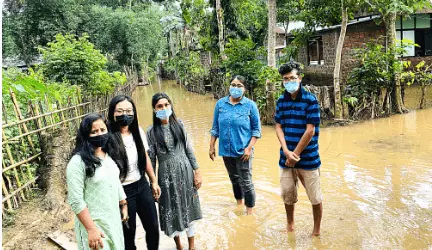
Emergency Rapid Relief Squad
Emergency Rapid Relief Squad (ERRS) is an independent vertical under the umbrella of the Humanity Welfare Council. ERRS values the interests of impoverished people worst hit by both natural and unnatural disasters.
We observed that India needs a well-built disaster management system. Therefore, we came up with the idea of a highly advanced rapid relief system catering to all the needs in the shortest possible time in a disaster-hit area.
We are currently reaching out to the most vulnerable areas adapting to strategies as per the needs of the geography of India.

If you are willing to serve society and support us in fulfilling this dream of ours, you can be a member of us as an individual or an organization. Your support is appreciated and much required for the success of our projects and programs. For more information, visit https://www.hwcindia.org/members.
You can also make a donation at https://www.hwcindia.org/donate. Your support is appreciated and much required for the success of our project.
Also, volunteers and any sort of technological help and spreading of awareness would be appreciated.




